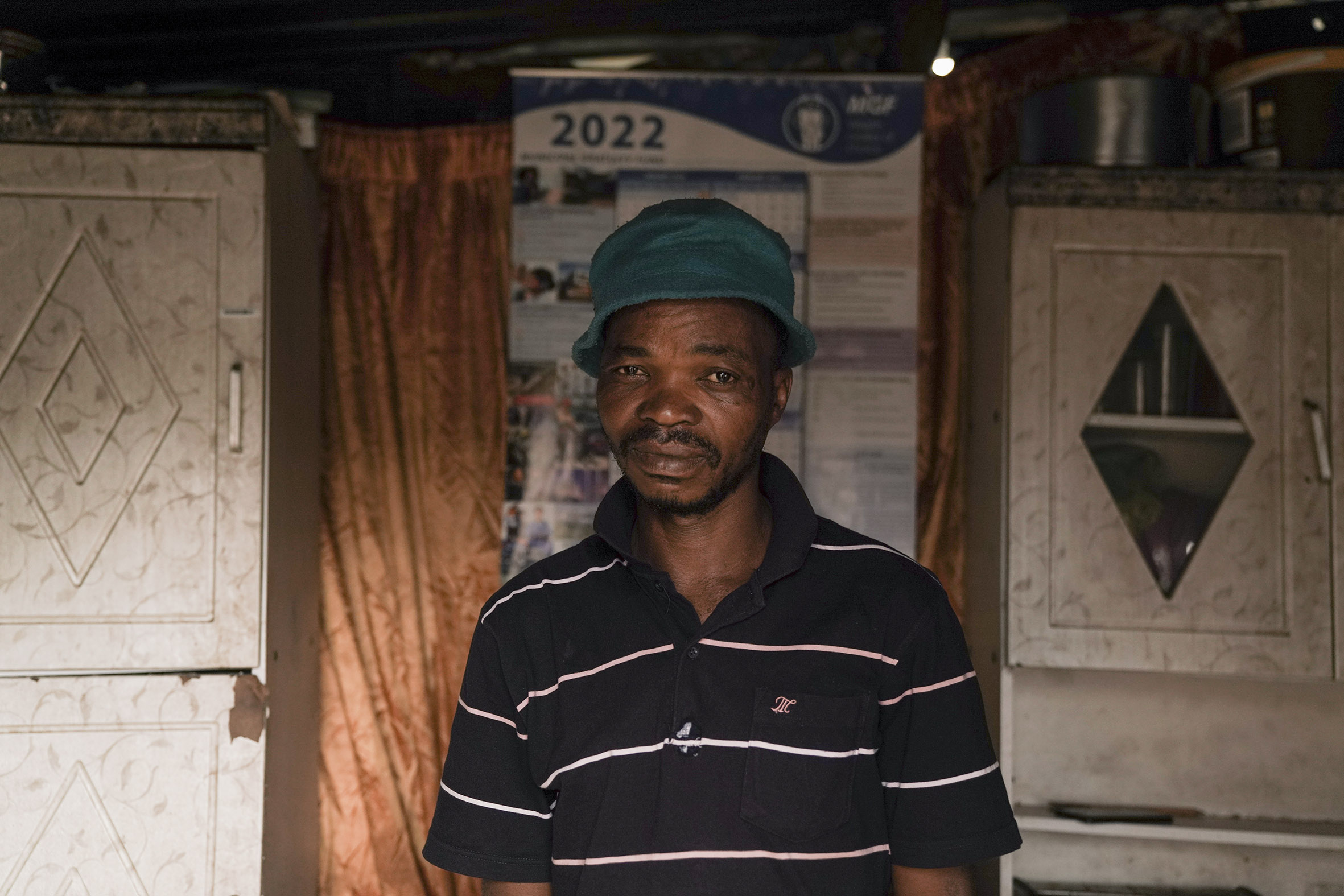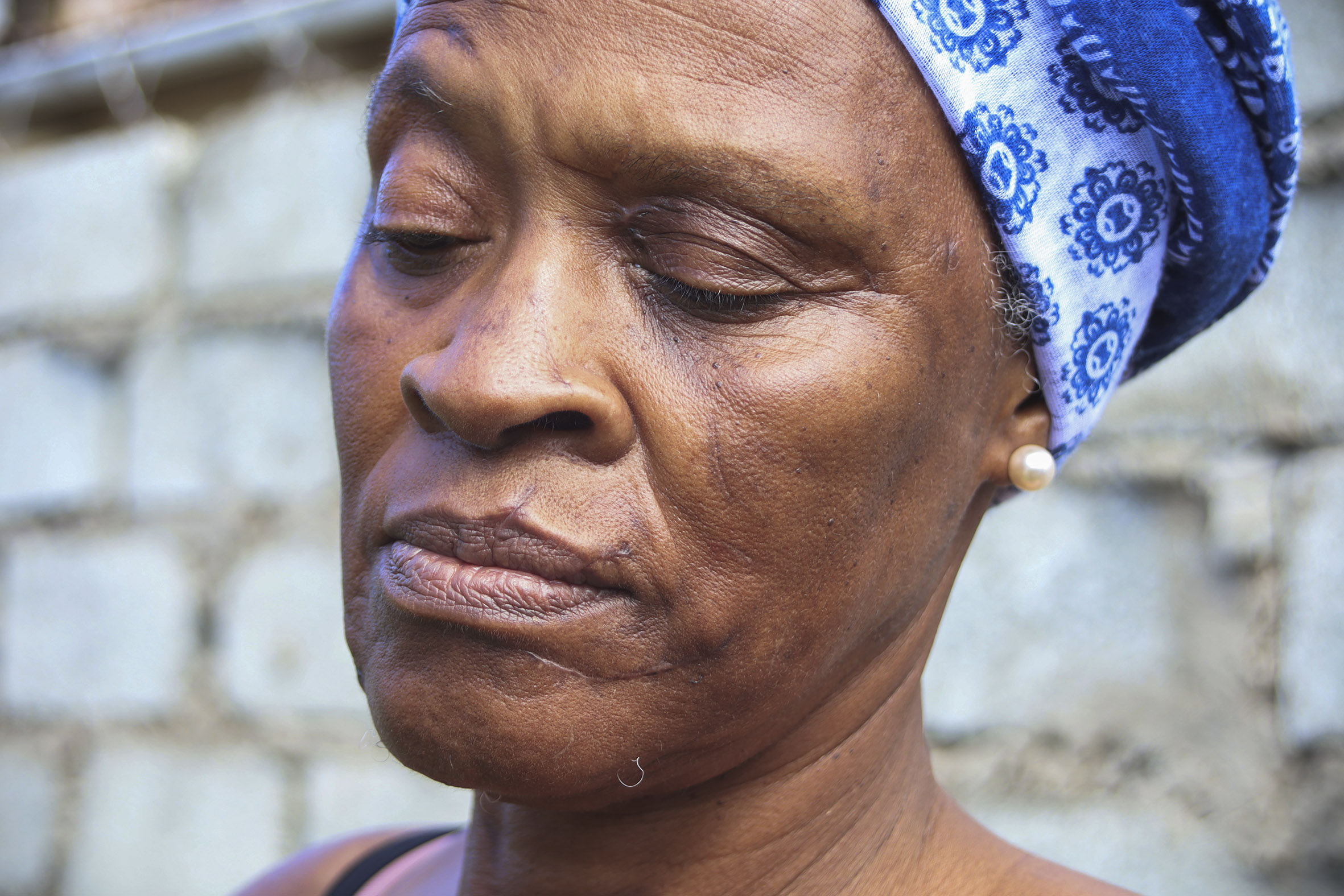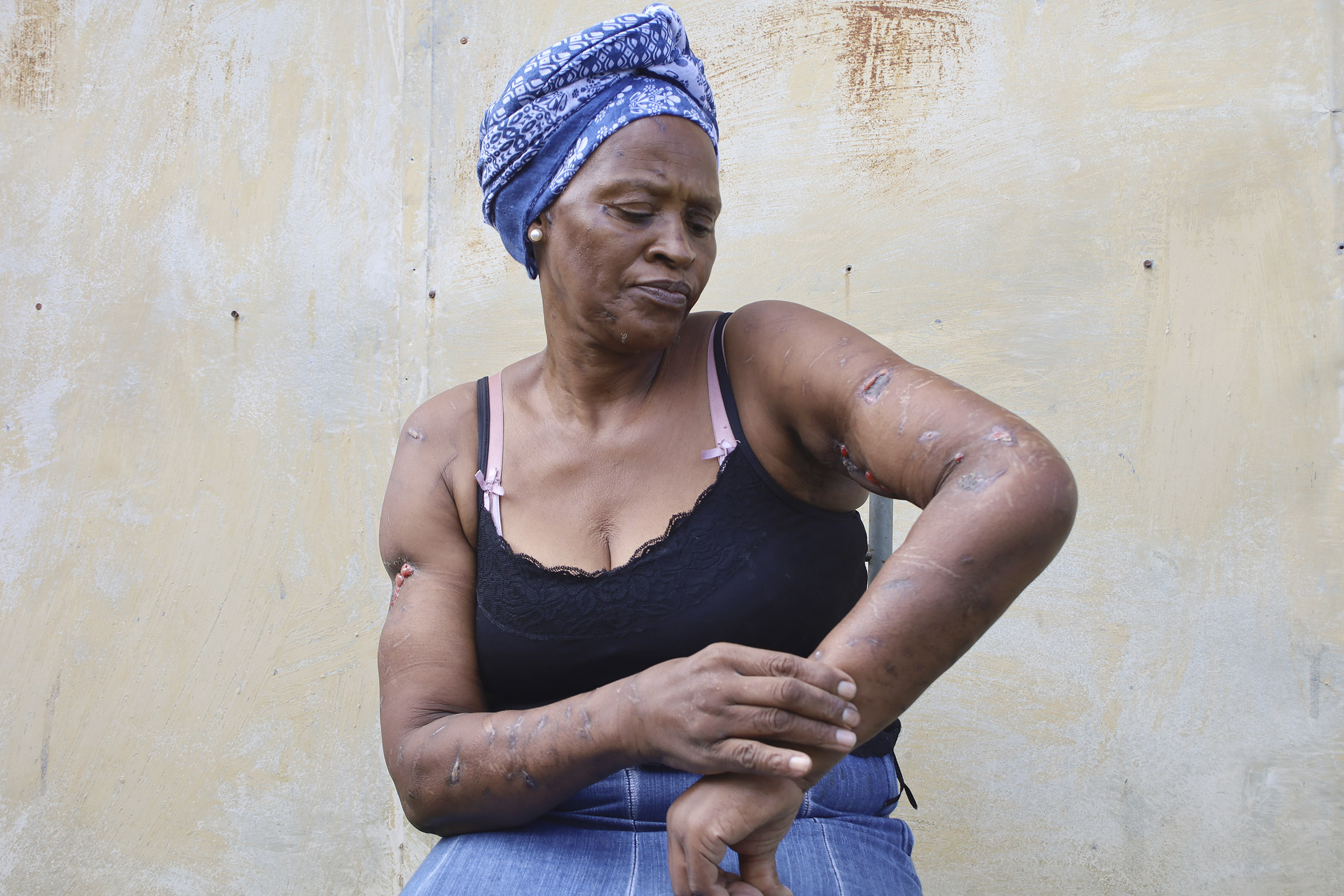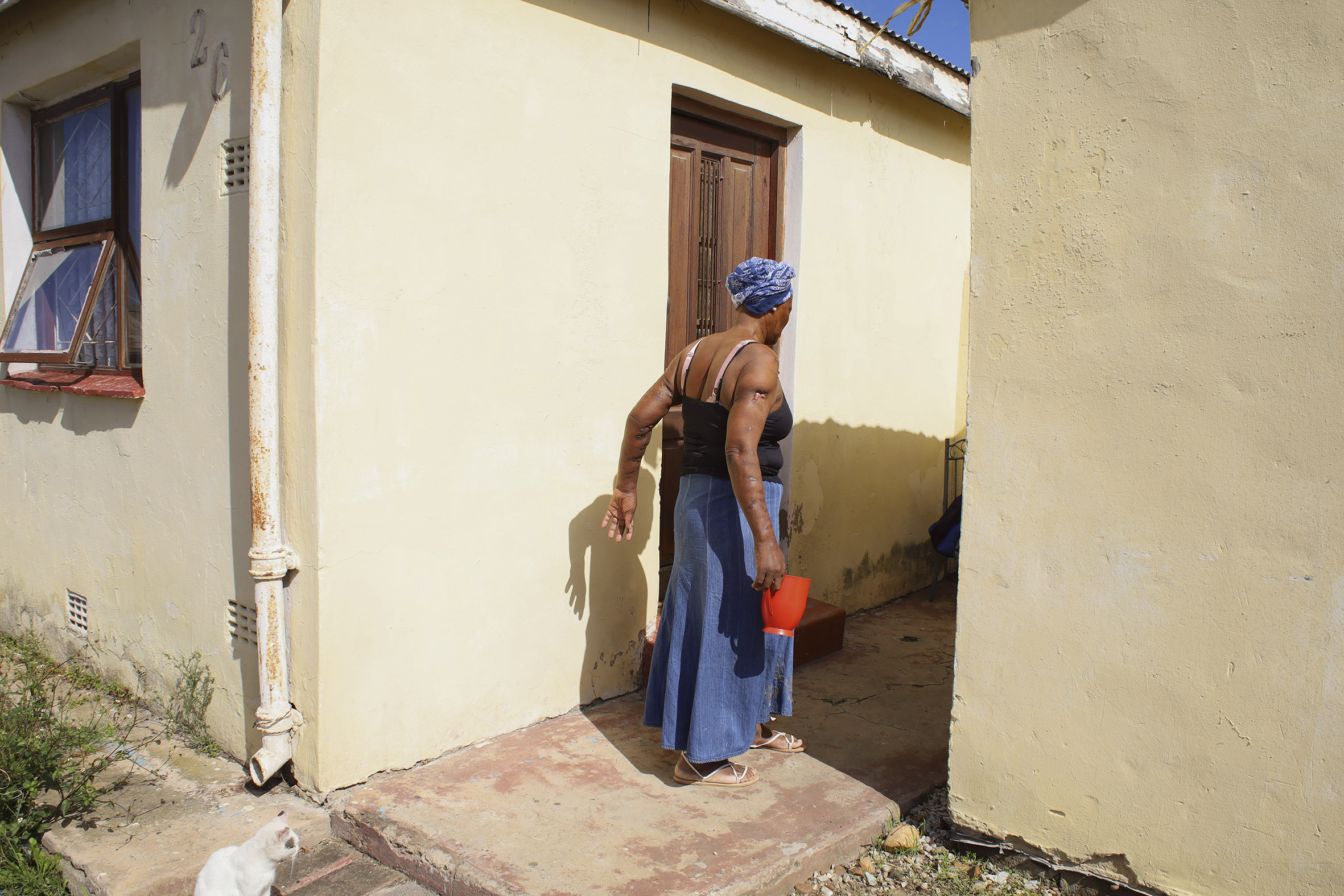Worker compensation yet to be put into practice
Two workplace incidents show that although domestic workers are legally covered by the compensation act, a lack of follow-through makes it almost impossible to claim.
Author:
5 May 2022

The jubilant celebrations that greeted the Constitutional Court’s decision to include domestic workers among those covered by the Compensation for Occupational Injuries and Disease Act has been dampened by poor implementation.
The court finally ruled in 2020 that domestic workers can claim compensation for disease, injury or death sustained at work. While that victory stands on paper, it’s another story when it comes to implementation, as the death of Mlungisi Nketshisa, 46, and 63-year-old Sindiswa Qaba’s injury at work have shown.
Three pit bull terriers mauled Nketshisa to death at his workplace in Crystal Park, Gauteng, on 14 February, where he worked as a gardener. A short graphic video (it is unclear who captured it) shows two pit bulls ripping the skin off Nketshisa’s forearms as he lay still on the ground, facing down.


At first, the family did not think much of Nketshisa not returning from work on 13 February as they assumed he was visiting friends. But when he did not return the following day, Nketshisa’s mother Thwalani Mahamba, 62, asked Nketshisa’s younger sister and his daughter to look for him, with no luck.
While at work on 15 February, Mahamba received a call from Nketshisa’s friend, who relayed a message that Nketshisa wished to see her because he had fought with his employer. The two then drove to the police station and there, the mother received the news of her son’s death.
“I am in pain. When I think of Mlungisi, a picture of him comes to mind, and I am forever crying,” says the grieving mother, sobbing.


A kind-hearted man
Mahamba says Nketshisa’s employer offered the family R5 000. She turned it down. What pains the family even more is the lack of remorse shown by the employers. According to Mahamba, rather than comfort the bereaved family, the employer mourned the death of his three dogs that were put down after the incident.
Anele Nketshisa, 44, says his brother worked for the same family for three years, from 2017 to March 2020, when Covid-19 lockdown restrictions prevented him from going to work. He returned in February this year, only to be mauled to death on his second day back.


Anele says the employers did not register Nketshisa with the Unemployment Insurance Fund (UIF). Neither did they register him with the Compensation Fund, the contributions for which go towards paying out compensation under the act. He added that three years before Covid-19 hit, Nketshisa had been paid R200 a day in cash.
Nketshisa’s firstborn Esethu Nketshisa, 22, says her father was a kind-hearted and hard-working man who made sure food was available at home. “In his presence, we always laughed. We enjoyed being with him,” she says, while her brother Luthando Nketshisa, 15, still visibly in pain, keeps to himself.
Nketshisa was buried on 26 February in Mount Ayliff, Eastern Cape.
Lack of registration
Qaba, from New Brighton in the Eastern Cape, survived an attack by her employer’s pit bull when someone intervened to save her life. She had been working for the family since 2019, from Monday to Friday and on public holidays, for R1 500 a month.
Like Nketshisa, Qaba says she has not been registered for UIF or the Compensation Fund. She arrived at work on 11 February and began her chores. While waiting for the kitchen and bathroom to dry after mopping, she sat in a chair outside, she says.
“I was not expecting Blacky to attack me. Unexpectedly, the dog jumped on me and knocked me to the ground. It started biting,” she says. “I screamed and shouted for help, calling out that the dog was biting me.”


For a month and a week, Qaba was in the hospital. She stayed with her sister Nosintu Qaba-Limba in Westering, Gqeberha, after being discharged. Qaba has scars from the dog bites all over her body. Qaba and Nketshisa were alone at their workplaces when the incidents happened.
A major stumbling block in the implementation of domestic workers benefitting under the compensation act is employers not registering their workers. According to law, employers must register their domestic workers within seven days of their employment.
“Employers who fail to register with the fund will be contacted by the department’s inspection and enforcement services to compel such employers to register. Where employers continue to persist, the department will pursue prosecution,” according to Hloni Mpaka, the spokesperson for the Department of Employment and Labour.


Police files
Pinky Mashiane, the founder of the United Domestic Workers of South African, is assisting the Qaba and Nketshisa families to get justice. Even if an employer hasn’t registered their employee with the Compensation Fund, the employee can still file a claim. The department would then follow up with the employer over their failure to register the employee and contribute to the fund. Union members, led by Mashiane and accompanied by the Nketshisa family, picketed outside the employer’s house in Crystal Park on Human Rights Day. Mashiane also flew to Gqeberha to help Qaba open a case against her employer.
“We are not sure how much the employers must contribute to the department annually. We also don’t know how domestic workers are going to be compensated. In a dialogue with the Department of Employment and Labour in February, we raised our concerns about transparency,” she says.
Mpaka clarified the protocol for contributions. “The employers’ contributions are based on a tariff which is risk-based in terms of the industry that they operate in. Higher-risk industries will pay higher rates while low-risk industries will pay comparable rates to their industries.”


Mavela Masondo, the Gauteng spokesperson for the South African Police Service (SAPS), says: “An inquest docket has been opened for investigation. Police are still waiting for the post-mortem results. The post-mortem results and a warning statement obtained from the owner of the dogs will be taken to the National Prosecuting Authority for a decision.”
In the Eastern Cape, Priscilla Naidu, the provincial spokesperson for the SAPS, says they have opened a case under the Animal Protection Act No 71/1962, which includes “negligently allowing/failure to prevent an animal from causing injury to another person”. The pit bull was put down after attacking Qaba, says Naidu.
“A warning statement was taken from the owner of the dog. The case was sent to the senior public prosecutor on 7 April 2022. The matter was remanded to 3 June 2022 whereby the prosecutor summoned the owner of the dog and the victim to be present for consultation and mediation.”
